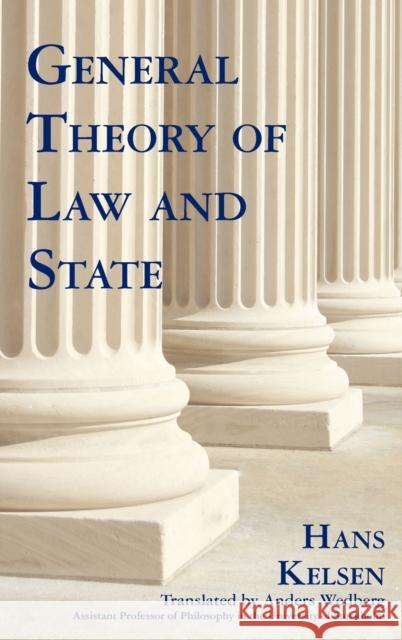General Theory of Law and State » książka
General Theory of Law and State
ISBN-13: 9781886363748 / Angielski / Twarda / 2011 / 544 str.
General Theory of Law and State
ISBN-13: 9781886363748 / Angielski / Twarda / 2011 / 544 str.
(netto: 286,24 VAT: 5%)
Najniższa cena z 30 dni: 298,88
ok. 16-18 dni roboczych.
Darmowa dostawa!
Reprint of the first edition. This classic work by the important Austrian jurist is the fullest exposition of his enormously influential pure theory of law, which includes a theory of the state. It also has an extensive appendix that discusses the pure theory in comparison with the law of nature, positivism, historical natural law, metaphysical dualism and scientific-critical philosophy. "The scope of the work is truly universal. It never loses itself in vague generalities or in unconnected fragments of thought. On the contrary, precision in the formulation of details and rigorous system are characteristic features of the exposition: only a mind fully concentrated upon that logical structure can possibly follow Kelsen's penetrating analysis. Such a mind will not shrink from the effort necessary for acquainting itself with...the pure theory of law in its more general aspects, and will then pass over to the theory of the state which ends up with a carefully worked out theory of international law." Julius Kraft, American Journal of International Law 40 (1946):496. Possibly the most influential jurisprudent of the twentieth century, Hans Kelsen 1881-1973] was legal adviser to Austria's last emperor and its first republican government, the founder and permanent advisor of the Supreme Constitutional Court of Austria, and the author of Austria's Constitution, which was enacted in 1920, abolished during the Anschluss, and restored in 1945. He was the author of more than forty books on law and legal philosophy. Active as a teacher in Europe and the United States, he was Dean of the Law Faculty of the University of Vienna and taught at the universities of Cologne and Prague, the Institute of International Studies in Geneva, Harvard, Wellesley, the University of California at Berkeley, and the Naval War College.
Reprint of the first edition. This classic work by the important Austrian jurist is the fullest exposition of his enormously influential pure theory of law, which includes a theory of the state. It also has an extensive appendix that discusses the pure theory in comparison with the law of nature, positivism, historical natural law, metaphysical dualism and scientific-critical philosophy. "The scope of the work is truly universal. It never loses itself in vague generalities or in unconnected fragments of thought. On the contrary, precision in the formulation of details and rigorous system are characteristic features of the exposition: only a mind fully concentrated upon that logical structure can possibly follow Kelsens penetrating analysis. Such a mind will not shrink from the effort necessary for acquainting itself with...the pure theory of law in its more general aspects, and will then pass over to the theory of the state which ends up with a carefully worked out theory of international law.": Julius Kraft, American Journal of International Law 40 (1946):496.Possibly the most influential jurisprudent of the twentieth century, Hans Kelsen [1881-1973] was legal adviser to Austrias last emperor and its first republican government, the founder and permanent advisor of the Supreme Constitutional Court of Austria, and the author of Austrias Constitution, which was enacted in 1920, abolished during the Anschluss, and restored in 1945. He was the author of more than forty books on law and legal philosophy. Active as a teacher in Europe and the United States, he was Dean of the Law Faculty of the University of Vienna and taught at the universities of Cologne and Prague, the Institute of International Studies in Geneva, Harvard, Wellesley, the University of California at Berkeley, and the Naval War College.











